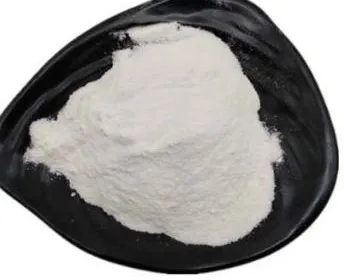Warning: Undefined array key "title" in /home/www/wwwroot/HTML/www.exportstart.com/wp-content/themes/1198/header.php on line 6
Warning: Undefined array key "file" in /home/www/wwwroot/HTML/www.exportstart.com/wp-content/themes/1198/header.php on line 7
Warning: Undefined array key "title" in /home/www/wwwroot/HTML/www.exportstart.com/wp-content/themes/1198/header.php on line 7
Warning: Undefined array key "title" in /home/www/wwwroot/HTML/www.exportstart.com/wp-content/themes/1198/header.php on line 7
- Afrikaans
- Albanian
- Amharic
- Arabic
- Armenian
- Azerbaijani
- Basque
- Belarusian
- Bengali
- Bosnian
- Bulgarian
- Catalan
- Cebuano
- China
- China (Taiwan)
- Corsican
- Croatian
- Czech
- Danish
- Dutch
- English
- Esperanto
- Estonian
- Finnish
- French
- Frisian
- Galician
- Georgian
- German
- Greek
- Gujarati
- Haitian Creole
- hausa
- hawaiian
- Hebrew
- Hindi
- Miao
- Hungarian
- Icelandic
- igbo
- Indonesian
- irish
- Italian
- Japanese
- Javanese
- Kannada
- kazakh
- Khmer
- Rwandese
- Korean
- Kurdish
- Kyrgyz
- Lao
- Latin
- Latvian
- Lithuanian
- Luxembourgish
- Macedonian
- Malgashi
- Malay
- Malayalam
- Maltese
- Maori
- Marathi
- Mongolian
- Myanmar
- Nepali
- Norwegian
- Norwegian
- Occitan
- Pashto
- Persian
- Polish
- Portuguese
- Punjabi
- Romanian
- Russian
- Samoan
- Scottish Gaelic
- Serbian
- Sesotho
- Shona
- Sindhi
- Sinhala
- Slovak
- Slovenian
- Somali
- Spanish
- Sundanese
- Swahili
- Swedish
- Tagalog
- Tajik
- Tamil
- Tatar
- Telugu
- Thai
- Turkish
- Turkmen
- Ukrainian
- Urdu
- Uighur
- Uzbek
- Vietnamese
- Welsh
- Bantu
- Yiddish
- Yoruba
- Zulu
ആഗ . 29, 2024 16:39 Back to list
Aspartame - Understanding the Controversial Sweetener
The Controversy Surrounding Aspartame Understanding Its Impact on Health
Aspartame is one of the most widely used artificial sweeteners in the world, commonly found in sugar-free products, diet sodas, and various low-calorie foods. Its sweetening power is approximately 200 times that of sucrose (table sugar), leading to its popularity as a sugar substitute. However, the safety and health effects of aspartame have been subjects of ongoing debate and research since its approval by the U.S. Food and Drug Administration (FDA) in 1981.
The Controversy Surrounding Aspartame Understanding Its Impact on Health
Over the years, numerous studies have been conducted to assess the safety of aspartame. Regulatory bodies around the world, including the FDA, the European Food Safety Authority (EFSA), and the World Health Organization (WHO), have declared aspartame safe for human consumption when consumed within established daily intake levels. The FDA has set this limit at 50 milligrams per kilogram of body weight. For most people, this means consuming a significant amount of aspartame-containing products would be necessary to reach potentially harmful levels.
aspartame is

Despite the endorsements from health agencies, aspartame has been the center of various health-related controversies. Some studies have suggested links between aspartame consumption and various health issues, including headaches, allergic reactions, and even more severe conditions such as cancer. However, many of these studies have been criticized for methodological flaws, conflicting results, or lacking sufficient evidence to establish a direct cause-and-effect relationship.
The concerns over aspartame have led to the emergence of a larger discussion about artificial sweeteners in general. While many people rely on products sweetened with aspartame as a way to reduce caloric intake and manage weight, critics argue that consumption of artificial sweeteners may contribute to cravings for sweet foods, potentially leading to overeating and weight gain. Furthermore, the long-term effects of consuming these sweeteners remain largely unknown, raising questions about their overall impact on health and metabolic processes.
In recent years, consumer preferences have shifted, with many individuals seeking more natural alternatives to artificial sweeteners. Products like stevia and monk fruit have gained popularity as they are derived from natural sources and are perceived as healthier options. This shift highlights the importance of consumer awareness and the ongoing need for research into the effects of both artificial and natural sweeteners.
In conclusion, while aspartame has been deemed safe for most individuals and provides a viable option for those looking to reduce sugar intake, it is essential to approach its consumption with informed awareness. As ongoing research sheds light on the long-term health effects of artificial sweeteners, individuals should consider their dietary choices carefully, weighing the benefits and potential risks associated with sweetener consumption.
Latest news
-
Certifications for Vegetarian and Xanthan Gum Vegetarian
NewsJun.17,2025
-
Sustainability Trends Reshaping the SLES N70 Market
NewsJun.17,2025
-
Propylene Glycol Use in Vaccines: Balancing Function and Perception
NewsJun.17,2025
-
Petroleum Jelly in Skincare: Balancing Benefits and Backlash
NewsJun.17,2025
-
Energy Price Volatility and Ripple Effect on Caprolactam Markets
NewsJun.17,2025
-
Spectroscopic Techniques for Adipic Acid Molecular Weight
NewsJun.17,2025

